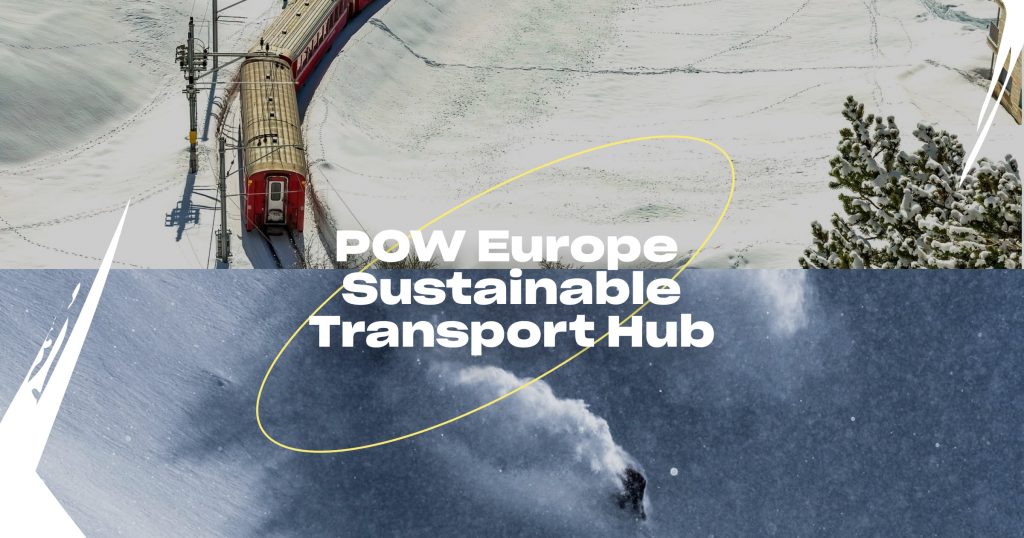Protect Our Winters (POW) Europe Launches Initiatives To Help Skiers & Boarders To Cut Travel Emissions

Emissions from transport from our homes to the slopes are the main source of CO2 when it comes to our ski and snowboarding, representing an average 70% of total emissions on a ski holiday, so Protect Our Winters (POW) Europe is launching a mobility campaign.
“We all love to be in nature to practise our favourite outdoor sports. It seems absurd that by going out to do what we love, we contribute to a warming climate and consequently the destruction of these places” says Sören Ronge, POW Europe coordinator.
Skiers and snowboarders can now visit the POW Mobility website to learn how transport negatively affects our climate and how we can reduce our footprints while moving around.

The car is still the most popular mode of transport to access outdoor areas for sports and recreation for most European skiers although Brits usually take a flight, so POW Europe has launched its Sustainable Travel Hub as part of a wider campaign to raise awareness, provide solutions and push for the necessary policy changes.
The group is also going to run a Europe-wide POW Mobility Week (March 28 – April 3) aimed at engaging the outdoor community in finding creative and impactful ways to reduce its emissions.

During POW Mobility Week businesses and individuals are being encouraged to bring down their transport emissions as much as they can.
This will be accompanied by corporate and individual actions, film screenings, a round table discussion and the chance to win prizes for the best sustainable travel stories and the most kilometres travelled sustainably, tracked through an app by our partners Active Giving.
” By better understanding our transport emissions footprint, outdoor sports lovers will be able to make more informed decisions on their mobility behaviour,” said Sören, adding, “Changing our transport behaviour on an individual level from plane to train can significantly help to reduce emissions. If we connect this with investments and the necessary political changes for substantial development of public and electrified transport, we can reduce the main bulk of emissions from outdoor sports activities.”




